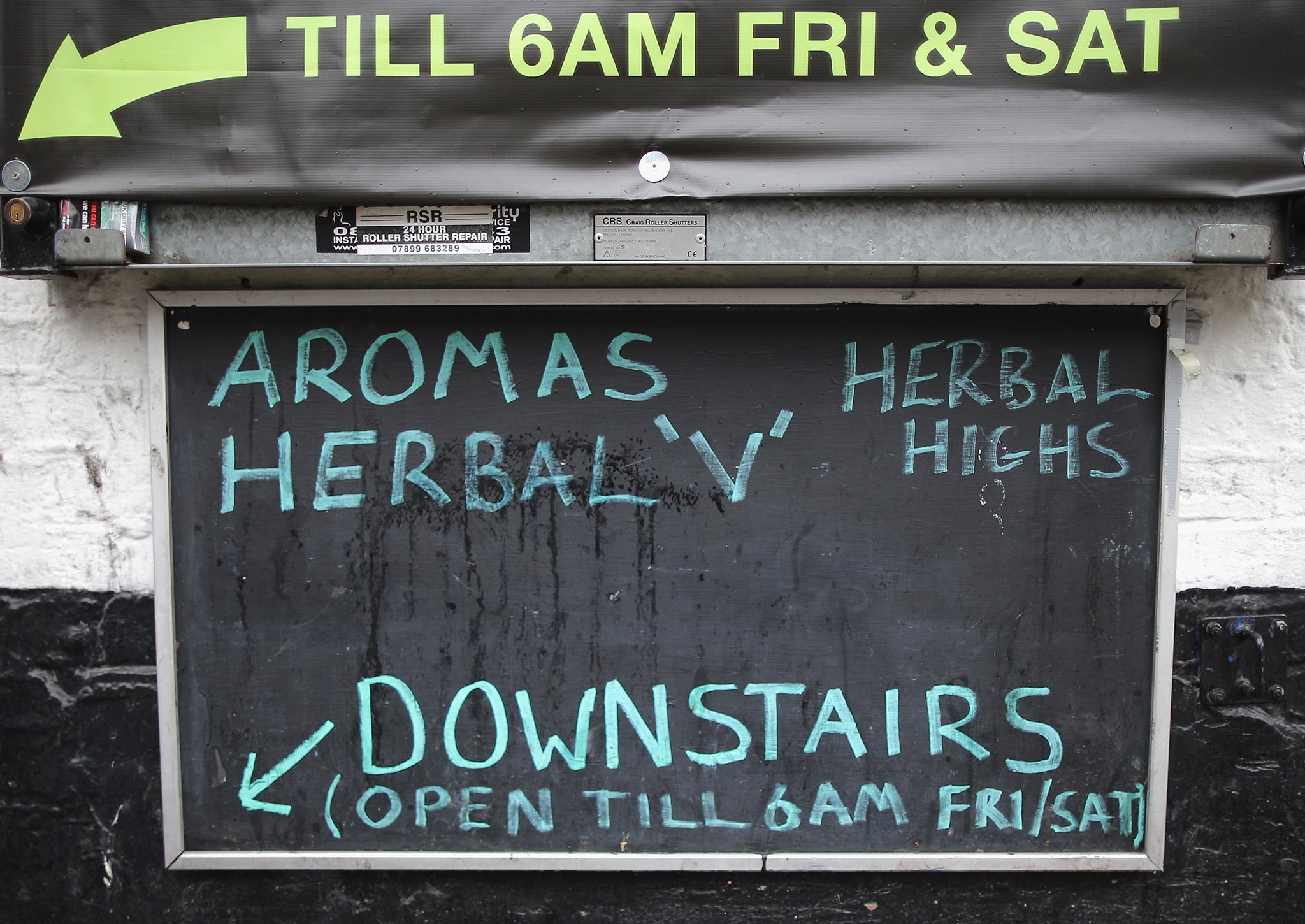Legal highs: Two-thirds of young people who take substances intend to ignore incoming ban, research finds
A survey of over 1,000 16- to 24-year-olds found 64 per cent would be likely to use the drugs in future

Your support helps us to tell the story
From reproductive rights to climate change to Big Tech, The Independent is on the ground when the story is developing. Whether it's investigating the financials of Elon Musk's pro-Trump PAC or producing our latest documentary, 'The A Word', which shines a light on the American women fighting for reproductive rights, we know how important it is to parse out the facts from the messaging.
At such a critical moment in US history, we need reporters on the ground. Your donation allows us to keep sending journalists to speak to both sides of the story.
The Independent is trusted by Americans across the entire political spectrum. And unlike many other quality news outlets, we choose not to lock Americans out of our reporting and analysis with paywalls. We believe quality journalism should be available to everyone, paid for by those who can afford it.
Your support makes all the difference.Around two-thirds of young people who take legal highs intend to ignore the incoming ban on the substances, new research suggests.
A study conducted by national youth charity YMCA found that the ban would do little to reduce harm caused by the substances.
The charity surveyed over 1,000 16- to 24-year-olds and conducted focus groups with over 100 young people.
Of those surveyed, 64 per cent said they would be likely to use the drugs in future, despite the incoming law change.
In a further challenge to the logic behind the new law, the poll also found that 71 per cent of legal high users had only taken the substances after having previously used illegal drugs.
Denise Hatton, chief executive of YMCA England, said young people would likely be “unperturbed” by the ban.
She called for more education to be given to children to reduce potential harm from the substances.
“While YMCA welcomes Government action on legal highs, we have uncovered strong evidence to suggest this will not achieve what is necessary to address the impact they are having on many young people’s lives,” she said.
“The ban is likely to have some success in reducing the numbers of young people taking these substances, however, we believe it will to do little to address the hidden, darker side to legal highs.
“What we have discovered is that many young people, including those who are highly entrenched in their addiction to substances such as Spice, are likely to be unperturbed by this change in the law.
“Unless the Act is backed up with changes to the education and support currently available, our evidence says that these young people and more will continue to experience harm at the hands of legal highs for years to come.”

The survey was conducted by polling organisation YouthSight on behalf of the charity.
The legal highs ban was due to come in earlier this year but was delayed amid concerns it was unenforceable, and is now expected to come in on 26 May 2016.
Instead of selecting specific substances to ban, the Psycoactive Substances Act bans all psychoactive substances and then legalises some – namely food, alcohol and nicotine.
A Home Office spokesperson said: “Psychoactive substances ruin lives and we owe it to all those who have lost loved ones to do everything we can to eradicate this harmful trade.
“This Act will bring to an end the open sale on our high streets of these potentially harmful drugs and deliver new powers for law enforcement to tackle this issue at every level in communities, at our borders, on UK websites and in our prisons.
”But we know that legislation is not the silver bullet, and we continue to take action across education, prevention, treatment and recovery in order to reduce harmful drug use. For example, we are developing a resource pack which provides tools and information for local areas to engage with young people to tackle the use of psychoactive substances. We are also updating the FRANK website.”
Join our commenting forum
Join thought-provoking conversations, follow other Independent readers and see their replies
Comments